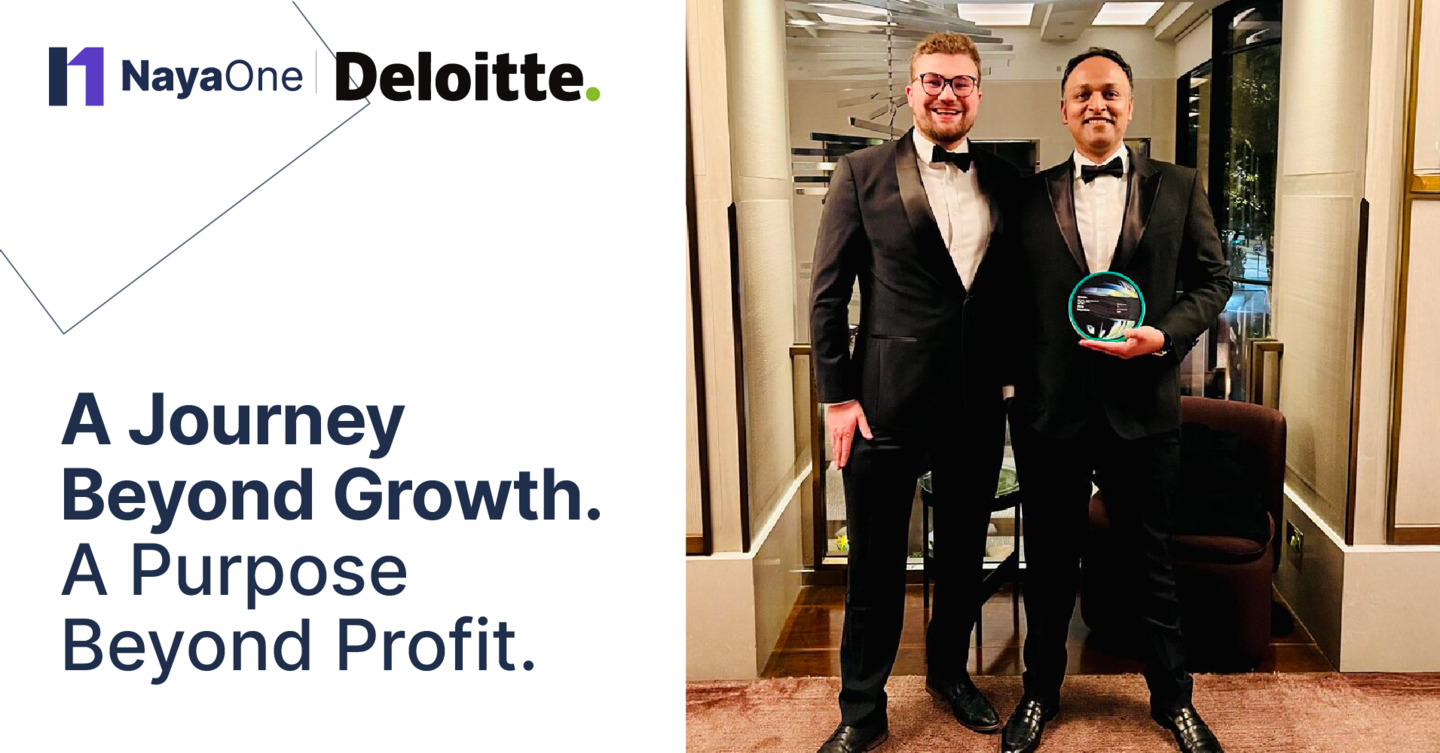Innovation plays a pivotal role in the success of startups, fueling their growth, enhancing competitiveness, and ensuring sustainability over the long term. For early-stage firms, the ability to continuously respond to market demands and provide distinctive solutions can serve as a crucial competitive edge.
In 2021, a significant 56% of small and medium-sized enterprises in the banking and payment sectors worldwide reported the integration of fintech solutions into their daily operations, highlighting the transformative impact of innovation across various industries. Nevertheless, startups frequently face challenges such as limited resources, a tendency towards risk aversion, and difficulties in scaling.
A recent survey indicated that 85% of executives acknowledged that fear often hampers innovation within their organisations. This blog will explore how to overcome barriers to innovation, including cultivating a culture of experimentation, forming strategic partnerships, and adopting agile methodologies to foster ongoing innovation. By focusing on how to overcome barriers to innovation, startups can unlock their full potential and achieve sustained growth in a competitive landscape.
What are the common barriers to innovation?
In the current competitive environment, innovation serves as a vital catalyst for business success. Nevertheless, many organisations face considerable obstacles in nurturing an innovative culture.
The barriers to innovation can significantly impact a company’s ability to stay competitive and adapt to changing market conditions. By recognising these impediments, companies can implement proactive measures to foster an environment that encourages creativity, experimentation, and advancement.
Resource limitations
- Financial constraints: Restricted budgets may limit the capacity for research and development, prototyping, and the marketing of new products or services.
- Shortage of skilled labour: A lack of individuals possessing the required expertise can obstruct the development and execution of innovative concepts.
Cultural and psychological obstacles
- Resistance to change and internal opposition: Apprehension regarding changes, concerns about job security, established routines, and bureaucratic procedures can hinder the acceptance of new ideas and suppress creativity.
- Risk aversion: Fear of failure may deter organisations from embracing the risks essential for innovation.
- Short-term orientation: An excessive focus on immediate outcomes can obstruct investments in long-term innovation projects.
Organisational challenges
- Misalignment and ineffective communication: A lack of coherence among team members, departments, or divisions, combined with poor communication, can result in misunderstandings, delays, and lost opportunities.
Organisational challenges
- Absence of vision or strategy and unclear innovation objectives: Without a clear direction or well-defined goals, it becomes challenging to prioritise innovation efforts and allocate resources efficiently.
What are the strategies to overcome resource constraints?
Overcoming resource constraints is essential for driving growth and innovation, particularly in startups. According to McKinsey, 83% of executives identify resource allocation as the most critical management lever for spurring growth. To achieve this, understanding how to overcome barriers to innovation is crucial. Effective resource management ensures that startups can allocate their limited resources efficiently, enabling them to innovate and scale successfully in a competitive landscape.
- Automating financial management: Advanced fintech tools can automate budgeting, expense tracking, and financial reporting. This reduces manual workload, minimises errors, and ensures that startups can allocate resources more efficiently, freeing up time and capital for innovation.
- Optimising resource allocation: Fintech solutions can provide real-time insights and analytics on resource utilisation. By leveraging data analytics platforms, startups can make informed decisions on where to allocate resources, ensuring they are used in the most impactful areas.
- Leveraging crowdfunding platforms: Fintech-enabled crowdfunding platforms can provide access to capital from a diverse range of investors. This alternative funding source helps startups raise funds without relying solely on traditional venture capital, addressing financial constraints and supporting innovation.
- Implementing lean financial technologies: Fintech solutions like digital wallets and automated payment systems streamline financial processes, reduce transaction costs, and enhance efficiency. This lean approach helps startups manage limited resources more effectively.
- Utilising blockchain for transparency: Blockchain technology can enhance transparency and reduce administrative costs by automating contract execution and record-keeping. This minimises the need for intermediaries and ensures that resources are utilised effectively.
- Adopting scalable cloud solutions: Cloud-based fintech solutions offer scalable infrastructure that adapts to the needs of growing startups. By leveraging cloud computing, startups can manage IT resources more efficiently and avoid the high costs of maintaining physical infrastructure.
- Enhancing financial forecasting with AI: AI-driven fintech tools can improve financial forecasting and budgeting accuracy. By predicting future financial needs and optimising cash flow, these tools help startups allocate resources more strategically and mitigate risks.
- Streamlining compliance and regulation: Fintech solutions can simplify compliance with financial regulations through automated reporting and monitoring systems. This reduces the burden of regulatory requirements, allowing startups to focus more on innovation and less on administrative tasks.
- Facilitating strategic partnerships: Fintech platforms can connect startups with potential partners and investors, creating opportunities for collaboration and resource-sharing. These partnerships can provide access to additional expertise and technologies that enhance innovation.
- Providing access to flexible financing: Fintech solutions offer various financing options such as invoice financing and revenue-based financing. These flexible financial products help startups manage cash flow and access capital when needed, supporting their innovation efforts.
These approaches not only tackle resource limitations but also closely align with the overarching aim of how to overcome barriers to innovation within fintech solutions. By prioritising lean operations, strategic funding, and flexible resource management, companies can effectively drive progress and unlock new growth opportunities.

How can resistance to change be managed effectively with fintech solutions?
By leveraging fintech solutions to navigate risk aversion, organisations not only diminish uncertainty but also cultivate an environment where innovation is pursued alongside prudent risk management. Through the promotion of informed risk-taking, the establishment of structured risk processes, and the incremental testing of ideas, businesses can surmount reluctance and foster sustainable growth.
Promoting an innovative culture
It is essential to nurture a culture that welcomes change. While cultures driven by fear may produce immediate results, they are less conducive to ongoing innovation. Studies indicate that merely 11% of organisations characterised by high-fear environments are recognised as leading innovators, in contrast to 58% of those with low-fear atmospheres. Fostering an environment that encourages open-mindedness, risk-taking, and creative experimentation can diminish resistance and facilitate sustainable growth. For instance, digital collaboration tools can help teams exchange ideas more openly and test new concepts quickly, reducing the fear of failure and encouraging a mindset open to experimentation.
Acknowledging and rewarding innovative contributions
Recognising and rewarding employees for their innovative contributions can significantly mitigate resistance to change. By celebrating creativity and innovation, organisations cultivate a supportive atmosphere where employees are inspired to adopt new initiatives.
Efficient change management facilitated by fintech
Fintech innovations streamline change management by providing cohesive platforms for communication, training, and assistance. For instance, change management systems can consolidate updates, offer detailed instructions for new procedures, and supply training materials to facilitate transitions. Furthermore, sophisticated fintech applications utilise predictive analytics to detect potential areas of resistance early, enabling management to tackle these issues proactively.
Clear articulation of change benefits
Fintech platforms improve communication by ensuring consistent and transparent messaging throughout the organisation. Through automated emails, instant alerts, or digital onboarding systems, these solutions guarantee that all stakeholders are informed about the advantages of new initiatives, fostering trust and alignment.
Training and support during transition periods
Fintech solutions can provide tailored training modules and resources to assist employees during transitions. Engaging tutorials, virtual coaching, and immediate support facilitate teams’ adaptation to new systems and processes, thereby minimising uncertainty and resistance.
By adopting these strategies, fintech organisations can more effectively manage resistance, align teams with organisational objectives, and foster a culture that perpetually encourages innovation.
How to navigate risk aversion with fintech solutions?
Risk aversion poses a considerable challenge to innovation, particularly within the fintech sector, where experimentation is crucial for advancement. Fintech solutions can assist businesses in addressing risk aversion in the following ways:
Promoting informed risk-taking: Fintech solutions offer data-driven insights that facilitate well-informed decision-making. By utilising advanced analytics, AI-based models, and predictive tools, organisations can evaluate the potential effects and risks associated with new concepts prior to full implementation. This enables teams to engage in informed risk-taking with increased assurance, as their choices are supported by credible data.
Establishing a systematic risk management framework: A systematic approach to risk management can be incorporated into fintech platforms to thoroughly assess and mitigate potential risks. Features such as automated compliance systems, real-time monitoring, and risk assessment dashboards empower organisations to detect and address risks at an early stage. These organised processes simplify the innovation process while maintaining risk within acceptable limits.
Conducting small-scale trials to validate concepts: Certain fintech solutions allow businesses to execute controlled, small-scale trials prior to expanding new initiatives. By experimenting with ideas in a limited setting, organisations can collect valuable insights, evaluate results, and refine strategies without subjecting the entire organisation to undue risk. Pilot programs supported by fintech tools facilitate rapid iterations, enabling teams to gain confidence in new solutions before full-scale deployment.
Overcome the barriers to innovation with NayaOne’s fintech solutions
Struggling with how to overcome barriers to innovation? NayaOne’s AI sandbox offers the ideal environment for startups to experiment, validate, and scale new ideas without the usual risks. Our platform provides instant access to real-world data, enabling you to test innovative solutions rapidly and securely.
Whether it’s launching MVPs or refining existing products, NayaOne empowers you to drive innovation with confidence. Unlock the full potential of your fintech solutions with the speed, security, and flexibility only NayaOne can deliver.
FAQs
Fintech solutions drive innovation by providing new ways to manage and analyse financial data, automate processes, and offer personalised financial services. They enable faster transactions, improved customer experiences, and more efficient operations.
A culture of experimentation encourages continuous testing and iteration of new ideas. This approach allows companies to learn from failures, adapt quickly, and implement innovative solutions that meet market demands.
Successful fintech innovations include digital wallets, blockchain-based payment systems, robo-advisors for investment management, and AI-driven fraud detection systems. These innovations have transformed traditional financial services and improved accessibility for consumers and businesses alike.





